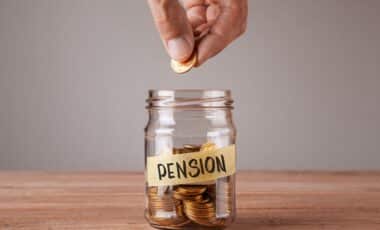The Department for Work and Pensions (DWP) is providing hardship payments to certain Universal Credit claimants who have had their benefits sanctioned at the maximum rate. This support is designed for those who are struggling to meet basic essential needs due to a full or partial sanction.
Eligible claimants can receive up to 60% of their standard allowance, which could amount to £370 per month for a couple where at least one person is aged 25 or over. This financial assistance is not automatic and requires claimants to meet specific conditions before applying.
Who Is Eligible for a Hardship Payment?
To qualify for a hardship payment, claimants must:
- Have their Universal Credit reduced by 100% of the standard allowance due to a sanction (50% or more for couples).
- Be 18 or older (or 16+ if sanctioned due to a fraud penalty).
- Be struggling to meet basic essential needs, such as food, housing, or medical costs.
- Have explored all possible alternative sources of support.
- Have taken steps to reduce non-essential expenses.
- Have met all work-related requirements in the seven days prior to applying.
- Have complied with any ‘low-level’ sanction requirements necessary to lift an indefinite sanction.
These conditions ensure that hardship payments are only granted to those who have demonstrated genuine financial need and compliance with the necessary requirements.
How Much Can Be Claimed?
The DWP calculates hardship payments based on the daily rate of the sanction amount. This means :
- The payment is 60% of the sanctioned amount.
- The total hardship payment is the daily rate multiplied by the number of sanctioned days.
- For a couple aged 25 or over, where the monthly standard Universal Credit allowance is £617, a hardship payment could provide up to £370 per month.
Who Is Not Eligible?
Claimants cannot receive a hardship payment if :
- Their Universal Credit sanction is at a lower rate (40% or 20% of the daily standard allowance).
- They are simply short of money or need to cover an urgent expense without meeting the full sanction criteria.
Additional Facts and Figures
Other relevant details that may impact hardship payments include :
- Standard Universal Credit allowances:
- Single claimant under 25: £311.68
- Single claimant aged 25 or over: £393.45
- Couple under 25: £488.59
- Couple with at least one person aged 25 or over: £617.60
- Sanctions can last from a few weeks to three years, depending on the severity of non-compliance.
- Approximately 6% of Universal Credit claimants have faced a sanction at some point.
- Receiving a hardship payment is not automatic—claimants must prove that they have:
- Explored all other financial support options.
- Taken steps to reduce non-essential spending.
Other Financial Assistance Options
Sanctioned claimants may also qualify for other emergency support, such as:
- Discretionary Housing Payment (DHP) – for assistance with rent costs.
- Local Welfare Assistance Schemes – emergency financial support provided by some local councils.
These conditions ensure that hardship payments are only granted to those who have demonstrated genuine financial need and compliance with the necessary requirements.
How to Apply
This scheme provides temporary financial relief but does not replace regular Universal Credit payments. Claimants should aim to meet the requirements to lift any sanctions on their benefits.
Individuals who believe they qualify for a hardship payment should:
- Contact the DWP as soon as possible.
- Provide evidence of financial hardship.
- Demonstrate compliance with work-related conditions.
Individuals who believe they qualify for a hardship payment should contact the DWP as soon as possible. It is essential to provide evidence of financial hardship and compliance with work-related conditions to increase the chances of approval.









